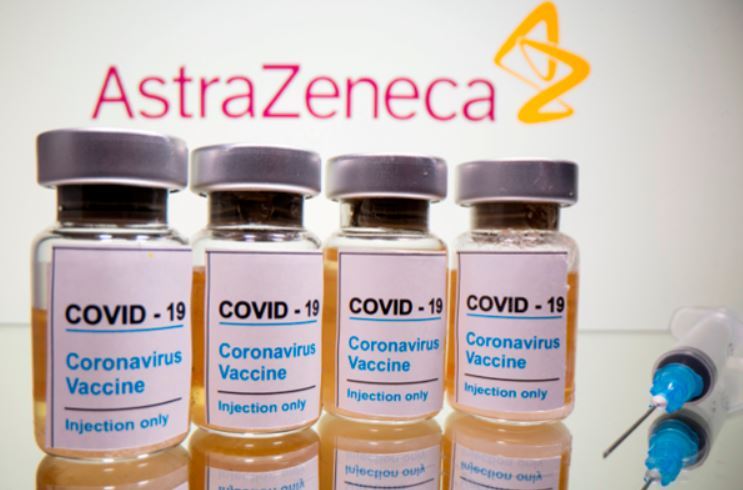 |
AstraZeneca vaccine (Reuters-Yonhap) |
AstraZeneca’s viral vector vaccine had 62 percent efficacy against some 8,900 clinical candidates aged 42.2 on average, according to Korea’s Ministry of Food and Drug Safety on Monday.
The ministry is running a three-leg review of each COVID-19 therapy or vaccine that has applied for emergency use in Korea.
So far, Celltrion’s antibody therapy, AstraZeneca’s viral vector vaccine and Pfizer-BioNTech’s mRNA vaccines have made the applications, in that order. The Drug Ministry has pledged for a speedy review within 40 days for each.
The examination of the AstraZeneca vaccine announced Monday is the first in the three-part study of clinical data presented by AstraZeneca.
Eight experts from the fields of virology, vaccines and clinical statistics participated in the review process.
The ministry said it received four batches of data from two UK clinical trials, one Brazil trial and one South Africa trial.
For the efficacy of the AstraZeneca vaccine, it looked at the data of clinical phase 2/3 trials from the UK and a clinical phase 3 trial from Brazil. For safety, it looked at all four clinical trials.
For the efficacy of the vaccine, tested on 8,895 adults in the UK and Brazil whose average age was 42.2, the vaccine showed 62 percent prevention against the SARS-CoV-2 virus. This meets the international standard for vaccines that requires a prevention rate of more than 50 percent, the Drug Ministry said.
Among the trial participants, the number of those over the age of 65 had only been 660, or 7.4 percent of the total studied for efficacy. Despite the low proportion, the Drug Ministry said it cannot rule out seniors from the AstraZeneca vaccination.
As for the safety of the vaccine, information of which was obtained from 23,745 participants from the UK, Brazil and South Africa whose average age was 41.8, mild and expected side effects such as pain at the injection site and elsewhere in the body had been reported in 87 percent of those given the AstraZeneca vaccine and 74 percent of those given a placebo. People experienced fewer side effects from the second dose.
Among those given the vaccine, 79 people, or 0.7 percent, experienced serious implications, with one such case being transverse myelitis, or inflammation in the spinal cord.
No exacerbation of COVID-19 or serious allergic reaction was recorded.
A newfound factor to consider is that the AstraZeneca vaccine held more efficacy when the two doses were administered across longer stretches than others. The second dose can be given as late as 12 weeks after the first shot, according to the Drug Ministry.
The vaccine is not recommended during pregnancy. For nursing mothers, it is not known whether the viral mass in the vaccine can be transmitted to the baby.
Results of the next and second stage of the three-part review of the AstraZeneca vaccine will be announced Thursday.
By Lim Jeong-yeo (
kaylalim@heraldcorp.com)








